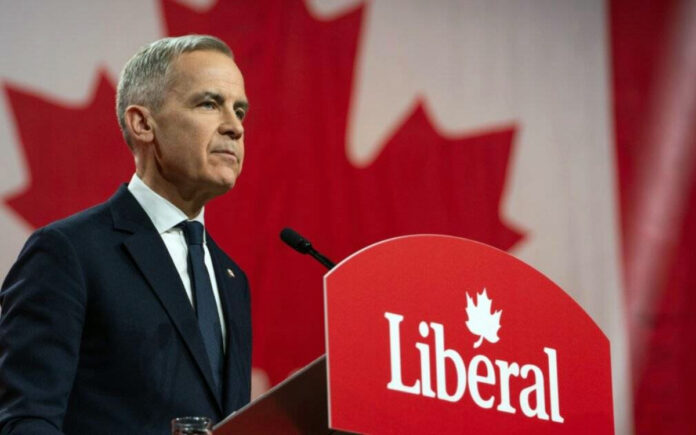Ottawa: Canada has accused a leading Chinese-language news account on the social media platform WeChat of orchestrating a coordinated disinformation campaign aimed at undermining Prime Minister Mark Carney ahead of the upcoming national election.
In a statement released Monday, the Privy Council Office—the central agency supporting the prime minister and cabinet—said the information operation is “deliberately amplifying narratives in a coordinated and inauthentic way on WeChat, to Chinese audiences, including communities living in Canada.”
Authorities alleged that the campaign seeks to discredit Carney’s qualifications and leadership experience in an effort to sway Chinese-speaking voters, particularly in urban areas with significant Chinese-Canadian populations. However, the government noted that the attempt is unlikely to influence the outcome of the April 28 election.
The campaign is being propagated by the WeChat account Youli-Youmian, which, according to Canadian intelligence reports, has direct ties to the Chinese Communist Party. The account has previously engaged in similar “malign behavior,” with targeted attacks on Canadian political figures in both June 2023 and January 2025.
Responding to the accusations, a spokesperson for the Chinese embassy in Ottawa rejected the claims outright.
“It is simply absurd and unjustified to launch (a) groundless smear and attack against the Chinese government on the basis of individual remarks on a social media platform. China firmly opposes this and will never accept it,” the spokesperson said in an emailed statement.
The embassy also reiterated China’s long-standing policy of non-interference, stating, “China adheres to the principle of non-interference in the internal affairs of other countries, and has never interfered in Canadian internal affairs.”
Also Read | Supreme Court Backs Trump’s Use of 1798 Law for Deportations, With Restrictions
The alleged campaign comes amid an increasingly contentious political landscape in Canada. The Liberal Party’s decision to nominate Mark Carney as a successor to the unpopular outgoing Prime Minister Justin Trudeau has reignited competition in an election race once seen as favoring the opposition Conservatives.
Complicating matters further are ongoing U.S. tariffs against Canadian exports, which have become a flashpoint in the campaign narrative. Meanwhile, communities of Chinese descent—comprising nearly 4.7% of Canada’s population, according to the 2021 census—hold significant electoral influence in urban ridings, especially in Vancouver and Toronto.
Also Read | Trump’s Tariff Shock Threatens Uptake of New Federal Buyout Offers
Last month, Canadian officials warned that foreign actors, particularly China, were likely to attempt interference in the federal election. Beijing has consistently denied any involvement in previous allegations of election meddling.
The Canadian government announced it would raise its concerns directly with Tencent, the Hong Kong-listed tech giant behind WeChat.



